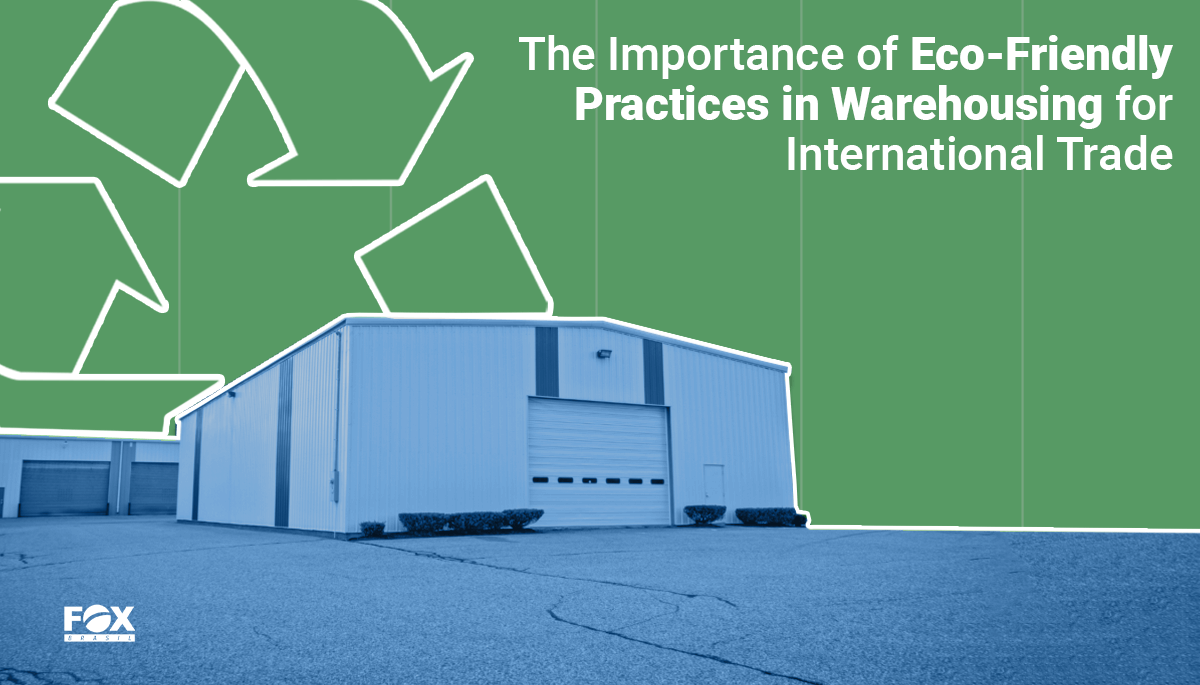The Importance of Eco-Friendly Practices in Warehousing for International Trade

Business
It is essential to highlight the importance of eco-friendly practices in warehouses within the context of international trade. These spaces play a crucial role in the global supply chain and have the potential to adopt sustainable measures to reduce environmental impact. In this article, we will explore how eco-friendly practices in warehouses can promote a more sustainable approach to international trade.
1. Energy Efficiency:
A fundamental practice in eco-friendly warehouses is the pursuit of energy efficiency. This involves implementing low-consumption LED lighting systems, utilizing motion sensors for lighting control, and installing thermal insulation to reduce the need for heating and cooling. By adopting these measures, warehouses can significantly reduce energy consumption and greenhouse gas emissions.
2. Sustainable Water Resource Management:
Proper water resource management is also essential in eco-friendly warehouses. Installing rainwater harvesting systems, using water-saving devices such as low-flow faucets, and implementing water reuse practices can contribute to the conservation of this precious resource. Additionally, conducting regular inspections on pipes and systems to prevent leaks and wastage is important.
3. Waste Management and Recycling:
An eco-friendly approach in warehouses includes proper waste management and promoting recycling. This involves implementing selective collection programs, segregating waste by type, and partnering with recycling companies to ensure the proper treatment of discarded materials. By prioritizing recycling and minimizing the amount of waste sent to landfills, warehouses can reduce their environmental impact.
4. Use of Sustainable Packaging:
The use of sustainable packaging is an eco-friendly practice that contributes to waste reduction and resource conservation. Warehouses can seek eco-friendly alternatives such as recyclable, biodegradable, or packaging made from renewable materials. Additionally, encouraging the reuse of packaging whenever possible can reduce the demand for new materials and minimize environmental impact.
5. Employee Awareness and Engagement:
The successful implementation of eco-friendly practices in warehouses relies on employee awareness and engagement. Regular training on sustainability, incentives for adopting eco-friendly behaviors such as turning off unnecessary equipment, and creating a culture of sustainability can make a difference. Employees play a crucial role in promoting sustainable practices and spreading a mindset of environmental responsibility.
By adopting eco-friendly practices in warehouses, international trade can become more sustainable and environmentally conscious. From energy efficiency to proper waste management, each measure contributes to reducing environmental impact and conserving natural resources. Let us encourage and support the implementation of these practices in warehouses, building a more responsible and sustainable global supply chain.